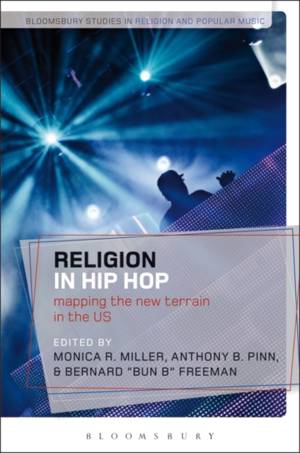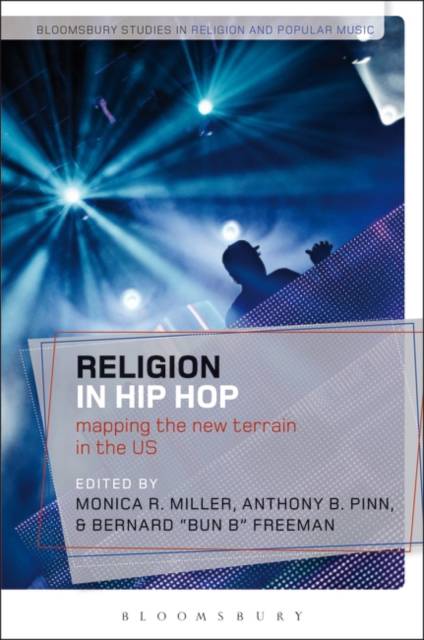
- Afhalen na 1 uur in een winkel met voorraad
- Gratis thuislevering in België vanaf € 30
- Ruim aanbod met 7 miljoen producten
- Afhalen na 1 uur in een winkel met voorraad
- Gratis thuislevering in België vanaf € 30
- Ruim aanbod met 7 miljoen producten
Religion in Hip Hop
Mapping the New Terrain in the Us
Omschrijving
Now a global and transnational phenomenon, hip hop culture continues to affect and be affected by the institutional, cultural, religious, social, economic and political landscape of American society and beyond. Over the past two decades, numerous disciplines have taken up hip hop culture for its intellectual weight and contributions to the cultural life and self-understanding of the United States. More recently, the academic study of religion has given hip hop culture closer and more critical attention, yet this conversation is often limited to discussions of hip hop and traditional understandings of religion and a methodological hyper-focus on lyrical and textual analyses.
Religion in Hip Hop: Mapping the Terrain provides an important step in advancing and mapping this new field of Religion and Hip Hop Studies. The volume features 14 original contributions representative of this new terrain within three sections representing major thematic issues over the past two decades. The Preface is written by one of the most prolific and founding scholars of this area of study, Michael Eric Dyson, and the inclusion of and collaboration with Bernard 'Bun B' Freeman fosters a perspective internal to Hip Hop and encourages conversation between artists and academics.Specificaties
Betrokkenen
- Uitgeverij:
Inhoud
- Aantal bladzijden:
- 296
- Taal:
- Engels
- Reeks:
Eigenschappen
- Productcode (EAN):
- 9781472507433
- Verschijningsdatum:
- 23/04/2015
- Uitvoering:
- Hardcover
- Formaat:
- Genaaid
- Afmetingen:
- 156 mm x 234 mm
- Gewicht:
- 585 g

Alleen bij Standaard Boekhandel
Beoordelingen
We publiceren alleen reviews die voldoen aan de voorwaarden voor reviews. Bekijk onze voorwaarden voor reviews.






